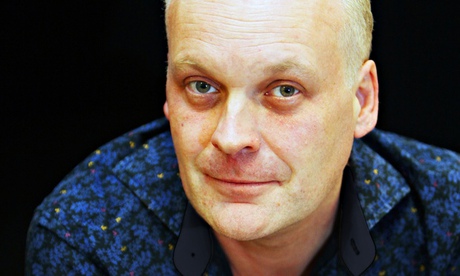
Of the four dimensions in which we live, time is surely the strangest. What is – was – the present? Is the future shaped and fixed, or does every individual action make a tiny adjustment to God's grand plan for us? And when does the past become The Past? Just how much time must elapse before what was once the mundane present becomes transformed, becomes transfigured, into that recent antiquity that exists magically in our memory, a luminous, indeed numinous, place, where everything that happened takes on an import and significance far beyond anything that attached to it when it was happening in the here and now? Is the past remembered, or imagined?
In this lovingly detailed account of childhood days in Bouillon, a small Belgian town just across the border from France, Patrick McGuinness is refreshingly free of sentimentality and that tendency towards Proustian rhapsodising that mar so many such memoirs. His version of the past has a uniquely poetical matter-of-factness and exactitude; it's also very funny, in its fondly quiet way. The people among whom he grew up, his Belgian great-grandparents, grandparents, his uncles and aunts, inculcated in him a lesson that, as a writer, he wisely took to heart:
"'Fais pas la comédie', they'd say: "lay off the dramatics".' And so he does, though the muted style that he employs communicates his sense of a lost past, and the beloved people who inhabit it, with deep feeling and remarkable vividness.
A lecturer in French at St Anne's College, Oxford, McGuinness has published a novel, The Last Hundred Days, which was longlisted for the Man Booker prize in 2011, and two volumes of poetry. And it is with a poem that he begins, recalling the days before television came along to emblue our evenings and
there were firesides filtered through net curtains, shadows
pulling free from shadows. The furniture didn't furnish,
it loomed; heavy as cannon, it boomed darkness.
When it comes to childhood, he writes, "I think mostly of rooms", and his book has the liminal yet limpid quality of one of Vermeer's mysteriously compelling interiors. His childhood "feels more real to me now than it did then", for, as he puts it, "I spent most of my childhood with a foretaste of its pastness in my mouth."
His book, he tells us, had its origins in stories he used to tell his own children about the world of Bouillon – the name seems made up, but it is not – in which he spent his childhood. His mother's family, the Lejeunes, were small-town folk, his grandfather, the determinedly laconic Eugène, a metalworker, and his grandmother, Lucie, a dressmaker. These people lived what Seamus Heaney, speaking of his own boyhood in County Derry, described as "a den life", and the book exudes a wonderfully fragrant mustiness; in these closed rooms the ticking of time is hardly perceptible, and "slow and curdled, there was a thickness to the minutes".
Yet the little town had its moments. Rimbaud and Verlaine, "two famous Ardennais", used to lodge in the Hotel des Ardennes, where McGuinness's great-great grandmother worked as a chambermaid, and most probably changed the renegade poets' bed linen, a matter which McGuinness, surely wisely, does not dwell upon. It fascinates him, though, to think of his not so distant ancestors catching sight of this exotic pair, "Verlaine with his Mongol dome… and beside him a slut-faced adolescent boy he sometimes called his wife…"
There were darker denizens of the place. Léon Degrelle, for instance, "fabulist, liar, vainglorious fantasist, fascist dandy", was leader of the Rexists, the Belgian Nazi movement before the second world war, and led a collaborationist battalion, the Légion Wallonie, which fought alongside the German army, with great bravery, it must be said, Degrelle becoming the most decorated foreign soldier in the Wehrmacht. After the war, he fled to Spain, and lived out the rest of his days in Malaga, where he "enjoyed six decades of insolently good health, and made no attempt to hide or go underground", remaining to the end an unrepentant Nazi and Holocaust-denier.
McGuinness's grandparents, Eugène and Lucie, are the two most imposing figures in his book, though in life what imposing they did was of the lightest and most diffident kind. "Eugène ailed. For most of my childhood that seemed to be his job, his second career: to ail emphysemically, peeling potatoes and playing cards in the kitchen on a red formica table." In the times between looking after Eugène, Lucie was at her sewing machine, copying for the richer ladies of the town items of Parisian haute couture from magazine photographs. She also made suits for young Patrick, being particularly attentive to the quality and shade of the linings. "I think," McGuinness writes, "Lucie must have sewn a lining into time itself, because when I'm in her house I find myself feeling my way inside it for a whole life I hid there years before."
McGuinness is a marvellous writer – literally, his book is filled with marvels – who, in John Updike's formulation, gives the ordinary its beautiful due. The world that is conjured in Other People's Countries is clear, palpable and distant, like a view seen through the wrong end of a telescope. On every page there are breathtakingly gorgeous images, similes, metaphors. From this hoard of everyday treasures let us have one, which combines many of the book's preoccupations: the passing of time, the murky beauty of a lost world, those dim and faintly scented rooms where the past still somehow survives. The author is recalling the autumn rains that would swell the little river that held the town in its meandering embrace. "The mud of the riverbank becomes lustrous and tender, the river rises and there's a brown translucent froth that trembles like a hem of dirty lace at the edges of the water. It's like looking through the window of an old house, trying to make out the slow, half-lit stirrings behind the pane."

